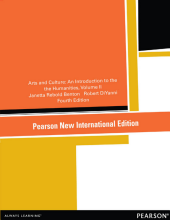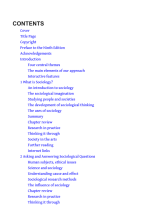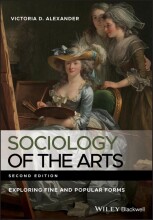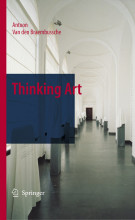Nations and Culture - Kuipers (2013)
3 important questions on Nations and Culture - Kuipers (2013)
In Kuipers' (2013) article, she states that national habitus emerges through embodied history.
Can you explain what we mean with embodied history?
- Based on the work of sociologist Norbert Elias (1897 - 1990).
- Embodied:
- Elias focussed on how social norms and behaviour develop through long-term historical processes and become deeply ingrained in how people move, think an feel.
- Embodied history:
- National habitus is not just learned on a conscious level but has become a part of a person's physical and emotional makeup through their upbringing and social influences.
- I..e, embodied history is enacted on an unconscious level
What are the three main similarities and a main difference between 'national repertoire' and 'national habitus'?
- Similar:
- Focus on cognition and thought communities.
- Cognition: how people process, interpret, and organize information.
- Thought communities: Groups of people that share common beliefs, values, and assumptions.
- Focus on habits and practices.
- Influenced by social structures and historical trajectories.
- Difference: theoretical origin.
- National habitus (Elias and Bourdieu) leaves less room for agency.
- Culture as cognitive structure.
- National repertoires (Swidler) is suggested as more of a toolkit with some, limited, options to solve practical problems.
- Culture in action.
Can you explain how populism connects to national habitus?
- A decline of the (unconscious) national habitus means that ideological differences within a country become more outspoken and more polarised.
- Populist parties throughout the world try to capitalise on these polarisation by highlighting anti-cosmopolitan ideas and promoting a return to identity and traditions (which are assumed to be clear and pure).
The question on the page originate from the summary of the following study material:
- A unique study and practice tool
- Never study anything twice again
- Get the grades you hope for
- 100% sure, 100% understanding































